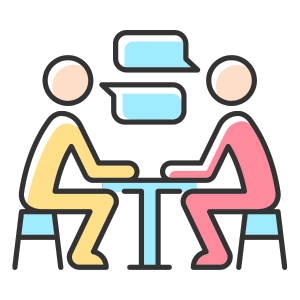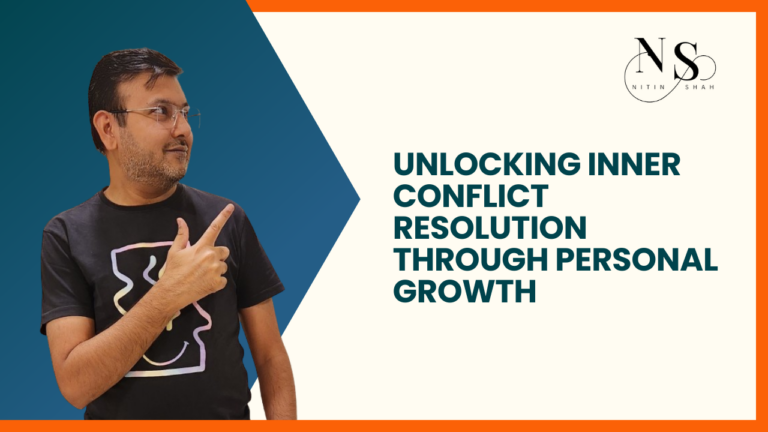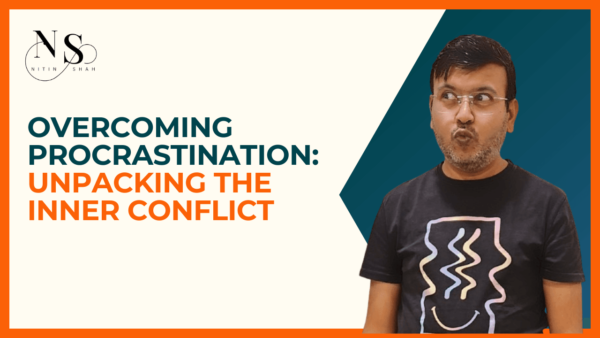Are you familiar with those internal struggles that leave you feeling torn between your desires and beliefs, affecting your emotional balance and decision-making? This article is your guide to understanding how personal growth can be your key to unlocking long-term resolution for inner conflicts. In simple terms, we will explore the transformative journey of self-improvement and its profound impact on overcoming internal battles.
Understanding Inner Conflicts

Let’s start by painting a picture of what inner conflicts look like. Imagine standing at a crossroads, torn between pursuing a career ambition and longing for a more balanced family life. This tug-of-war within, characterized by feelings of anxiety and indecision, is what we call inner conflict.
The Role of Personal Growth
Now, let’s talk about personal growth. Think of it as a lifelong journey of self-improvement, an ongoing process that involves getting to know yourself better, embracing imperfections, and constantly learning. Committing to personal growth becomes your guiding light, helping you navigate the complexities of conflicting thoughts and emotions.
Key Principles of Personal Growth for Inner Conflict Resolution
- Self-Awareness: The Power of Knowing Yourself
The first step is self-awareness. Imagine having a mental mirror that reflects your triggers and patterns. For instance, recognizing when the fear of failure holds you back from pursuing new opportunities. Understanding these triggers is crucial in overcoming inner conflicts. - Acceptance and Reflection: Embracing Imperfections
Next, we talk about acceptance. It’s about acknowledging that none of us are perfect. Reflecting on experiences without self-judgment is akin to turning mistakes into stepping stones for growth. Consider a setback at work – by reflecting on it without harsh self-judgment, you create room for positive change. - Continuous Learning and Adaptation: The Thrill of Growth
Personal growth is also about being a perpetual learner. It’s about staying curious, acquiring new skills, and adapting to change. Think of it as constantly upgrading your mental software to navigate life’s twists and turns.
Strategies for Staying Committed to Personal Growth

- Goal Setting: Crafting Your Roadmap
Goal setting is like drawing a roadmap for your personal growth journey. Make your goals clear, actionable, and realistic. Break them down into smaller milestones. For instance, if becoming more assertive is your goal, set specific objectives like expressing your opinions in team meetings. - Accountability and Support Systems: Building Your Team
Building a support system is vital. Share your goals with a mentor, friend, or support group. Having someone to cheer you on and hold you accountable, like a workout buddy or study partner, adds a layer of commitment to your growth. - Mindfulness and Resilience: Navigating Storms with Ease
Mindfulness is like having an anchor in a storm. It’s about being present and observing conflicting thoughts without judgment. Cultivating emotional resilience helps you bounce back from challenges. Consider it as equipping yourself with tools to navigate emotional storms with ease.
Overcoming Challenges in Personal Growth
- Identifying Obstacles: Unmasking Hidden Challenges
Identifying obstacles is akin to turning on the lights in a dark room. Recognize common challenges like procrastination or self-doubt. If, for example, the fear of judgment hinders your self-expression, acknowledging it is the first step toward overcoming it. - Strategies for Overcoming Setbacks: Turning Setbacks into Comebacks
Setbacks are not roadblocks; they’re detours. Instead of viewing them as failures, see them as opportunities for learning. Adjust your strategies based on these lessons. If a new habit isn’t sticking, reassess and tweak your approach.
Case Studies and Examples
Explore real-life stories that illustrate the transformative power of committing to personal growth. Consider individuals who pivoted careers mid-life or conquered deep-seated fears through a sustained dedication to self-improvement.
Professional Guidance and Resources
While your commitment is the engine, seeking professional help is like having a GPS. Therapies like Cognitive-Behavioral Therapy provide valuable tools. Books such as “Mindset” by Carol S. Dweck offer actionable insights. It’s like having a toolkit to make your personal growth journey more effective.
Measuring Progress in Personal Growth
Now, let’s talk about metrics. Think of them as checkpoints on your journey. If you’re working on emotional intelligence, track instances where you effectively manage your emotions or empathize with others. Celebrate even small achievements. Positive reinforcement enhances motivation.
Conclusion
In conclusion, staying committed to personal growth is your key to unlocking inner harmony. As you navigate the complexities of conflicting desires and beliefs, remember that this journey is not just about resolutions; it’s about transforming your life. If you’ve resonated with these concepts and are ready to take the next step, I invite you to book a free consultation session with a skilled therapist.
This is your chance to explore your challenges in a safe and non-judgmental space, understand their roots, and create a customized plan for your journey towards inner peace and harmony. Don’t let inner conflict hold you back any longer. Take action today and click the button below to schedule your appointment. Your transformative journey awaits




